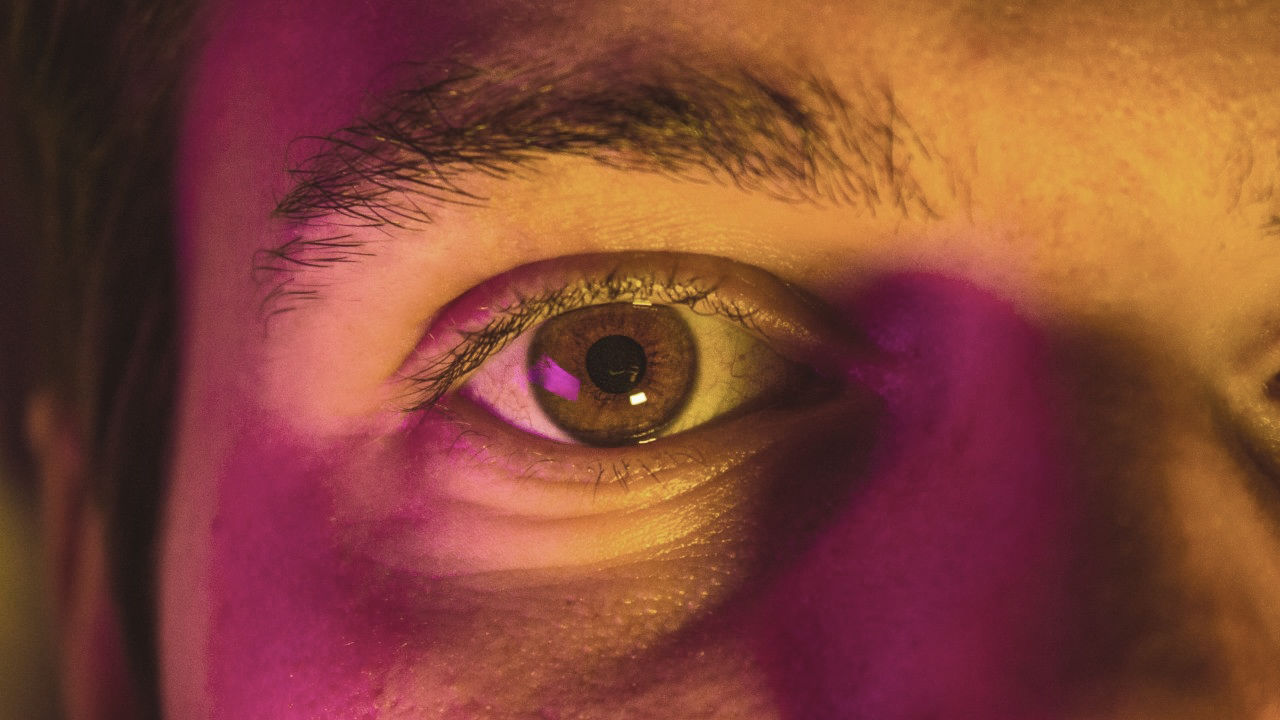And now Avril’s on the radio / Takes me back to 15 years ago / Just a small town kid with no regrets / ’Cause I ain’t dropped out of uni yet.
— Roxanne Emery, “Uncomplicated”
TW: Mention of suicidality, trauma, and addiction
Music is an important part of my life. I’ve previously shared two playlists: Twelve Songs That Remind Me What Caring Is All About and Ten Anthems for Comfort, Celebration, Inspiration, and Healing. In I’m on My Way I explored my response to Ed Sheeran’s “Castle on the Hill.” This time, I want to talk about two bands that have been living rent-free in my head for the past few weeks. I may just be very late to the party, but I hadn’t heard of RØRY or AnnenMayKantereit (AMK) until recently. It’s my pleasure to share them with you. Song links are to my favourite versions on YouTube.
RØRY / Roxanne Emery / ADHD_love
RØRY is the stage name of London-based singer-songwriter Roxanne Emery. I first came across Roxanne through the YouTube videos she’s made with her partner Richard Pink, in which they share their experiences of attention deficit hyperactivity disorder (ADHD). On their Instagram channel ADHD_love they introduce themselves as “Rich (neurotypical) and Rox (ADHD AF!)”. Their book Dirty Laundry: Why Adults with ADHD Are So Ashamed and What We Can Do to Help is available on Amazon and elsewhere.
I’ve not read their book yet, but Roxanne and Richard come across as lovely, genuine people with a passion for sharing their lived experience. It’s clear from the responses they get on social media that their content resonates with and helps a lot of people. It won’t surprise anyone that I draw parallels between them talking about ADHD and what Fran and I share in our book and blog regarding bipolar disorder and supportive friendships.
At some point I realised that Roxanne is also a fantastic singer-songwriter. It didn’t take me long to search out all the RØRY tracks I could find on YouTube, Facebook, Instagram, and Spotify. Without exception, her songs are raw and personal, exploring such themes as depression, suicidality, family dysfunction, and addiction. The first song I listened to was “Help Your Friends Get Sober” and it remains one of my favourites. Speaking about it in an interview for Kerrang! Roxanne said:
We have a mental health crisis, especially among young men, and their coping mechanism? Going out with mates, getting in a few bags of cocaine, and staying up all weekend. That’s not what they need. They need a chat. A hug. And maybe some support getting help.
I haven’t lost anyone to addiction or suicide, but I do know the fear that someone I know and care about might be in serious danger. The final lines of the song hit me hard, as they should.
In December, just gone, I lost a friend.
Got a call from his mom, saying, “Jimmy’s dead.”
Where do we go now the party’s over?
Fuck.
“Alternative” explores the enduring impact of dysfunctional families. It opens with a spoken, close-to-tears introduction: “I think there’s a version of me that’s happy somewhere in an alternate universe. I don’t know why, but that just is so sad to think about.” Check out the official roof-top video on YouTube.
I’ve yet to find a RØRY track I don’t respond to, but the one that’s really got under my skin is “Uncomplicated.” I wake in the middle of the night and find the lines turning in my head. The official video is quirky and colourful, the lyrics are catchy, and it’s more upbeat musically than “Alternative” or “Help Your Friends Get Sober,” but pay attention and you’ll find a powerful story about living with the consequences of trauma, pain, and loss.
And now Avril’s on the radio
Takes me back to 15 years ago
Just a small town kid with no regrets
’Cause I ain’t dropped out of uni yetAnd my brother is still in my life
Ain’t lost nobody to suicide
Take me back I fuckin’ hate it
Those days were uncomplicated
Discussing the song for Kerrang! Roxanne said “[i]t’s about feeling old and lost, and missing the days you were an angsty teen because things were uncomplicated then, even though you didn’t know it.”
With its mention of Canadian singer-songwriter Avril Lavigne, “Uncomplicated” has some personal resonances for me. Lavigne’s “I’m With You” was a favourite of my friend PJ who died way too young. Ironically, given the title, it also evokes fond memories of singing to Avril’s “Complicated” with a friend at Stack Newcastle, one of my Four Happy Places.
AnnenMayKantereit / Henning May
There’s less of a back-story to my discovering AnnenMayKantereit. Also known as AMK, the German band is named for its founding members, Christopher Annen, Henning May, and Severin Kantereit. I chanced on their cover of Suzanne Vega’s “Tom’s Diner” while browsing video shorts on social media.
I mean no disrespect to the other performers (on this track, AMK are joined by indie rock band Giant Rooks) but Henning May’s voice is beyond awesome. As the band’s Wikipedia entry attests, “[a] notable feature of the band’s music is the distinctly rough voice of the singer Henning May.” One YouTube comment on “Tom's Diner” puts it even more clearly: “I love how the second guy looks unassuming then he hits you with the most soulful shit you’ll ever hear.”
Despite covering only the first half of Vega’s lyrics the band have created something I find utterly compelling. I’ve been known to put it on repeat for an hour at at time, and it’s another song I find running through my head at unguarded moments. Musically and lyrically, it’s flawless, but I also adore how it plays to my love of coffee shops and people-watching.
I am sitting
In the morning
At the diner
On the cornerI am waiting
At the counter
For the man
To pour the coffeeAnd he fills it
Only halfway
And before
I even argueHe is looking
Out the window
At somebody
Coming in
I’ve written about this love elsewhere. In Coffee and Scribbles I described ten of my favourite writing venues. My current favourite, Costa Coffee in Kingston Park, Newcastle, is another of my Happy Places. As I write this now, I’m sitting at my favourite table in Costa, with “Tom’s Diner” playing in my headset on repeat. It captures the many hours I spend in coffee shops, my connection with the baristas (a recent post was inspired by a conversation with a friend who works here) and meeting up with various friends over the years.
Since discovering AMK I’ve listened to as many of their tracks as I can find. They cover several other songs in English, of which I love their gutsy version of “Roxanne” by The Police, Kylie Minogue’s “Can’t Get You Out of My Head,” Earth Wind and Fire’s “September,” and Bob Dylan’s “Forever Young.”
The majority of their songs, though, are performed in their native German. I can’t understand the lyrics at all, but I can certainly feel and respond to the emotion in such songs as “Katharina” and “Pocahontas.” I’m reminded of other foreign language songs I’ve enjoyed, including many of the recordings of Nana Mouskouri, “Je Voulais Te Dire Que Je T’attends” by Manhatten Transfer, Tolkien’s elven hymn “Namárië” as sung by Donald Swann, and the “French bits” of Blondie’s “Denis.”
Compassion and Understanding
On the surface, RØRY and AMK have very little in common. They nevertheless represent for me aspects of what I call vicarious living. As I wrote recently in Second-hand Experience, much of what I know about relationships, travel, and living with illness and trauma has been learned from other people.
Through her music and ADHD videos, Roxanne Emery shows me aspects of life I’ve never known personally. The music of AnnenMayKantereit evokes past experiences and people, but also opens me to things beyond my knowledge and understanding. In their different ways, both bands invite me to explore beyond my own lived experience.
As Fran and I were discussing the other day, when you’re confronted by other people’s experiences, especially those that confront or challenge you, you have a choice to make. You can reject them and turn away, or you can stay and do your best to listen, to learn, to grow in compassion and understanding. I’m grateful to RØRY and AMK for reminding me of this important lesson.
Over to You
In this post I’ve shared two bands I’ve recently discovered that mean a lot to me. Which musicians or bands speak most directly to you? Which songs or performances do you keep returning to? Who lives rent-free in your head? Who do you want to tell the world about? We’d love to hear from you, either in the comments below or via our contact page.
Photo by William White at Unsplash.





